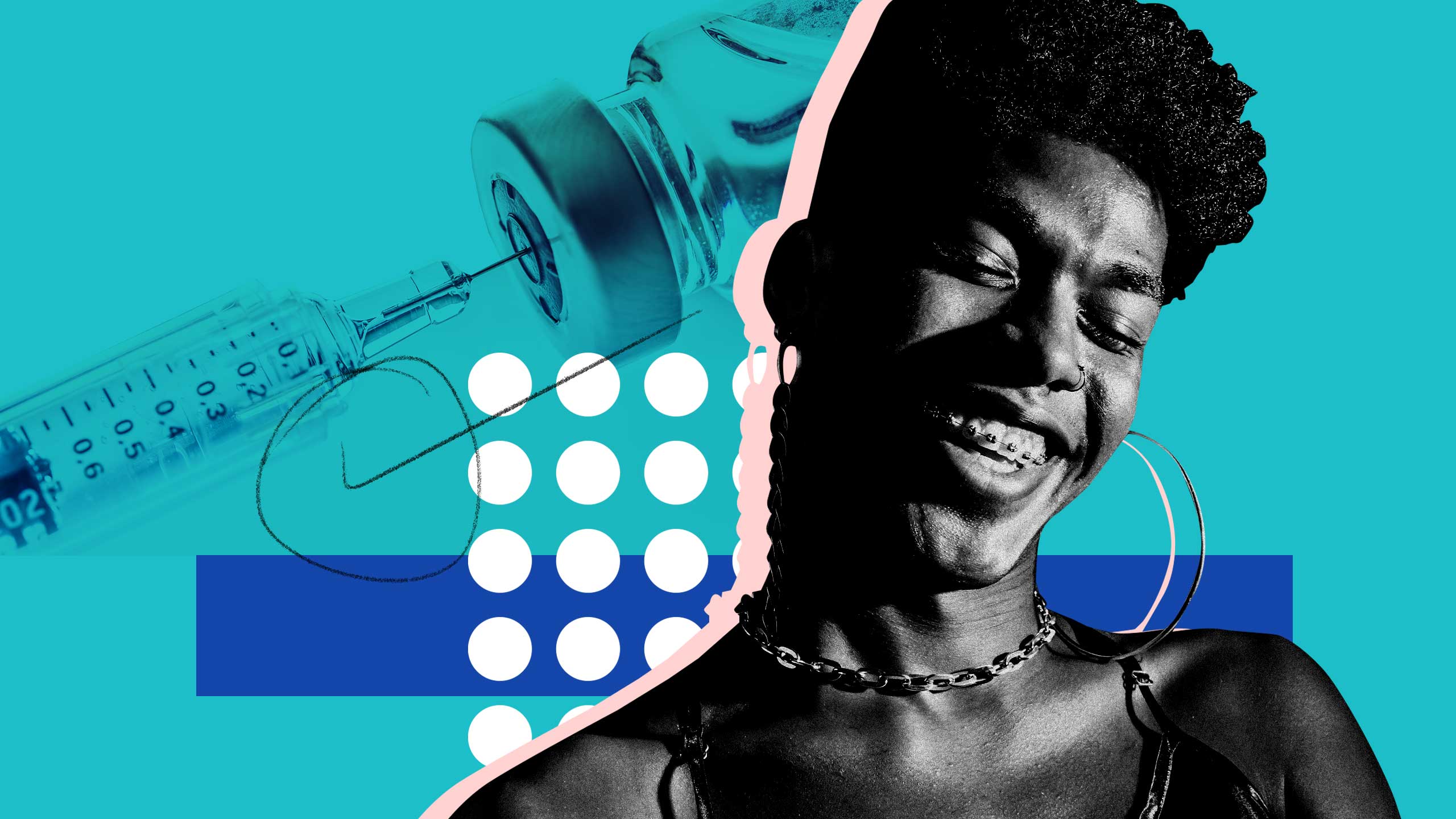A massive study has further proven what we all already knew to be true: gender-affirming care can be life-saving for trans youth.
In a new study published in the Journal of Adolescent Health, researchers from LGBTQ2S+ crisis intervention group The Trevor Project found that accessing gender-affirming hormone therapy such as puberty blockers, estrogen therapy or testosterone therapy significantly reduces the risk of suicide and depression in transgender youth.
It’s the largest study of its kind to date, surveying over 9,000 transgender and non-binary youth between the ages of 13 and 24 about gender-affirming hormone therapy. The data was collected as part of The Trevor Project’s 2020 survey of nearly 35,000 LGBTQ2S+ youth.
Here’s what you need to know about its findings.
Trans youth face alarming rates of suicide
Trans youth are at a greater risk of attempting suicide than their cisgender peers. According to a 2020 study published by The Trevor Project’s researchers in the Journal of Adolescent Health, transgender and non-binary youth were two to two and a half times as likely to experience depressive symptoms, seriously consider suicide and attempt suicide compared to their cisgender LGBQ+ peers.
And according to another study from the American Academy of Pediatrics published in 2018, more than half of transgender male teens reported attempting suicide in their lifetime, while 29.9 percent of transgender female teens said they attempted suicide and 41.8 percent of non-binary youth stated that they had attempted suicide at some point in their lives.
But in the latest Trevor Project study, suicides rates were shown to dramatically decrease when youth had access to gender-affirming hormone therapy. In people under the age of 18, hormone therapy was associated with a nearly 40 percent lower chance of depression or suicide attempt in the last year compared to peers who wanted gender-affirming hormone therapy but were not recieving it.
“It’s clear that gender-affirming care has the potential to reduce rates of depression and suicide attempts while banning this vital care and exposing young people to harmful political rhetoric can cause real harm,” Amit Paley, CEO and executive director of The Trevor Project said in a statement Tuesday.
“It’s critical that all transgender and nonbinary youth across the country have access to medical care that is affirming, patient-centered and evidence-based.”
Half of transgender and non-binary youth surveyed said they were not using gender-affirming hormone therapy but would like to; 36 percent were not interested in receiving gender-affirming hormone therapy and 14 percent were receiving gender-affirming hormone therapy.
The study also found that parental support plays a huge role in the results: 80 percent of youth who reported receiving gender-affirming hormone therapy also said they had at least one parent who supported their gender identity.
A landmark dataset
It’s a landmark study in the realm of trans youth mental health research, as there had previously been no large-scale studies examining mental health among transgender and non-binary youth who receive gender-affirming hormone therapy.
In a statement Tuesday, Trevor Project Vice-President of Research Amy Green said the study shows how impactful accessing gender-affirming hormone therapy can be.
“This study emphasizes the potential benefits of gender-affirming hormone therapy as a mechanism to reduce feelings of gender dysphoria and minority stress among transgender and nonbinary youth—thereby working to improve mental health outcomes and prevent suicide,” she said.
She also said it should serve as a warning that the record number of anti-trans bills which have passed in the U.S. this year—many targeting youth access to health care—could have dangerous consequences.
“These data should serve as a call to action to resist blanket bans on gender-affirming medical care and to invest in more research on this topic so that youth and their families can make evidence-informed decisions regarding care,” Green said.


 Why you can trust Xtra
Why you can trust Xtra


